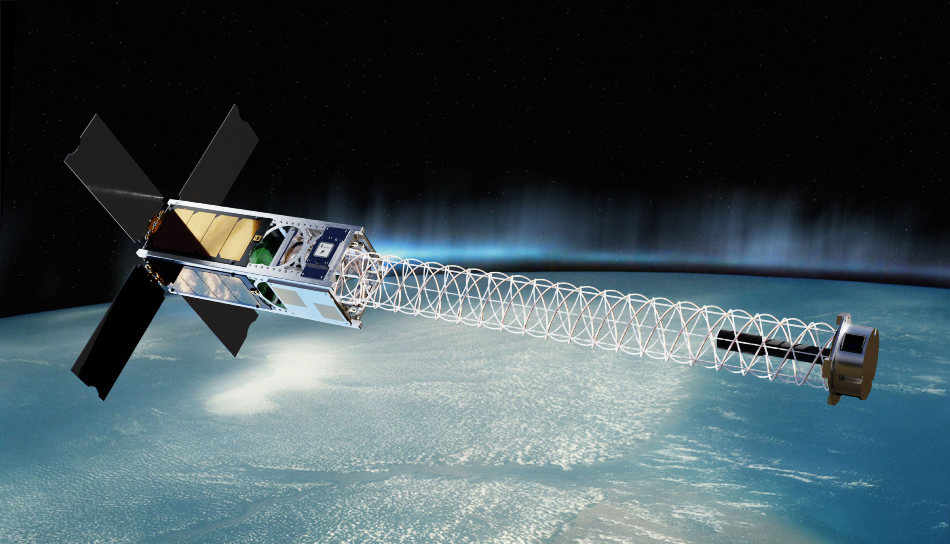Oct 8 2020
Iota Technology has signed up to the national SPRINT business support programme to collaborate with the University of Southampton on a major nanosatellite design project. The SPRINT funding will support Iota Technology’s SIGMA product, the first-ever nanosatellite capable of providing geomagnetic data for the World Magnetic Model, used in all modern navigation systems including smartphones.

The SPRINT project will provide funded access to geomagnetometry expertise from the University of Southampton. This will support Iota Technology’s aim of launching a technology demonstrator in 2022 and service mission in 2024, prior to the decommissioning of the existing geomagnetic monitoring satellites (European Space Agency's SWARM constellation).
The miniaturised boom-deployed magnetometer will allow nanosatellites to gather high-quality geomagnetic data that, until now, has only been possible with much larger spacecraft. This vital dataset is an essential part of all modern navigation systems, providing accurate heading data to smartphones, cars, ships, aircraft and small satellites.
The University of Southampton will provide skills and expertise in magnetic field sensing and testing, as well as the Printed Circuit Board (PCB) rapid prototyping facility operated by expert electronics engineers, where the PCB board for the SIGMA magnetometer will be designed, built and tested.
The project will be funded by a grant from the £4.8 million SPRINT (SPace Research and Innovation Network for Technology) programme that provides unprecedented access to university space expertise and facilities. SPRINT helps businesses through the commercial exploitation of space data and technologies.
Hugo Shelley, Director of Iota Technology said: “One of the main challenges in developing the next generation of geomagnetic monitoring satellites is miniaturisation. The magnetometry expertise at the University of Southampton will play a vital part in allowing us to make our technology smaller, without sacrificing the quality of the data that we can capture.
“With the European Space Agency SWARM satellites due to be decommissioned, we only have a short window of time to develop a sustainable service mission capable of recovering this key data. The SPRINT project will accelerate the development of our technology and enable us to build a demonstration model for launch in 2022.”
Hendrik Ulbricht, Deputy Head and Director of Research at the Department of Physics and Astronomy, University of Southampton added: “We’re helping Iota Technology to build the components for a prototype nanosatellite that can measure the Earth’s magnetic field, replacing technology that will be retired in five years.
“Our research group is experienced in working with magnetic sensors and this is a great opportunity to work in the space development environment with a real end goal.”